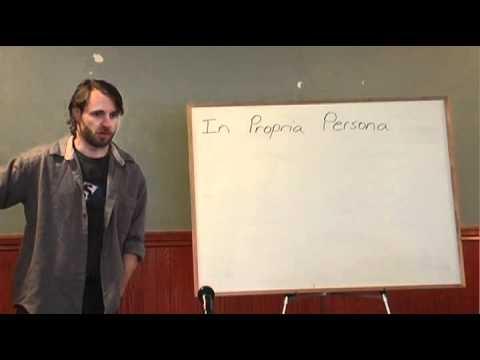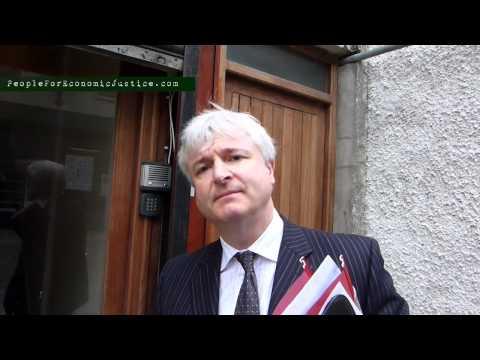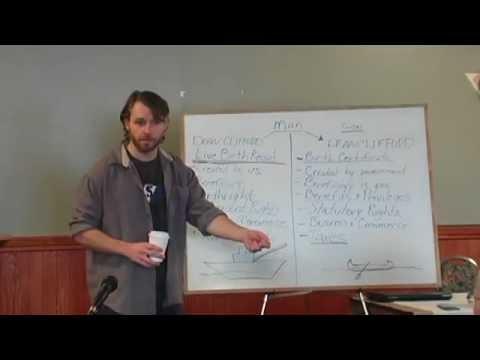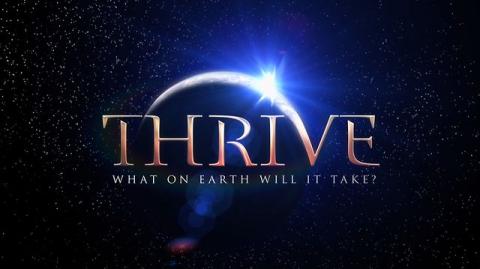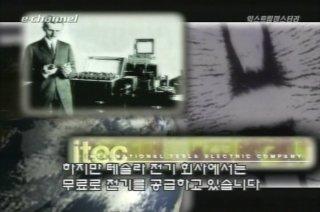Flex Your Rights - 10 Rules for Dealing with Police

Description
'10 Rules for Dealing with Police' seeks to teach (American) constitutional rights
The short film "10 Rules for Dealing With Police" opens with an unfortunate but common scene: A young black man in a little red car, rap music blasting, is driving down a gritty highway at night, minding his own business, thumping to a beat.
A police car pulls behind him. The man becomes agitated as he stops, muttering under his breath, "I am tired of this [expletive]."
By the time the officer gets to his window and shines the flashlight, the man, having done nothing but switch lanes, is projecting much attitude. He rolls down his window halfway.
"Yeah, I know the drill," he says, this being the fourth time in a year he has been "pulled over for nothing."
"Excuse me?" the officer says.
The man grabs his registration out of his glove box.
"No need for the attitude, bro," the officer says. "I'm looking out for your safety and everyone else on this road."
The man mutters some obscenity.
The officer asks him to step out of the car.
In that instant, he has violated the film's rule No. 1 for dealing with police.
"As soon as you opened your mouth, you failed the rule with your attitude," says narrator William "Billy" Murphy, a former Baltimore judge and defense attorney, best known for his role in "The Wire."
"10 Rules," a docudrama produced by the D.C. nonprofit Flex Your Rights, dispenses free legal advice with no-holds-barred dialogue. The producers, D.C. residents Steven Silverman, 33, and Scott Morgan, 30, created the film to help people in urban areas understand their constitutional rights.
"I realized the majority of people are confused and overwhelmed about how to handle a police encounter," Silverman says, standing in the lobby of the Cato Institute, the libertarian think tank where the film premiered Wednesday.
Upstairs there are sandwiches, spring water and soda in clear glasses for the policy wonks streaming in. This is what people in think tanks do in the middle of the day in the middle of the week in Washington: They take big, complicated issues, such as unintended consequences of everyday events, and turn them into products the rest of us can understand.
"Most people are constitutionally illiterate," says Silverman, a former Cato intern. "Most people will waive their rights entirely during a police encounter."
Silverman and Morgan, who studied criminal justice, plan to distribute DVDs to high schools, community groups, youth groups and churches. They spent two years making the film, which cost $110,000 and was funded in part by the Marijuana Policy Project. It was shot in Baltimore.
"Minorities are the audience," Morgan says. "It was important to us with this project because people of color are disproportionately targeted by police across the country." According the U.S. Bureau of Justice Statistics, minorities are more likely to be searched when arrested. The bureau's stats show that "stop and frisks" are occurring at record rates, Morgan says, particularly where minorities and low-income people live. He blamed "hard on crime" campaigns by politicians trying to get or stay elected.
Silverman says there are unintended consequences for not knowing the rules of what to do if stopped by police. "The term is racial targeting," Silverman says.
Neill Franklin, a retired Maryland state police officer, calls the film an important primer for educating police academies. "I'm a cop. I'm straight from the streets," Franklin says. "One of the things I always talked with police academy instructors about is to ensure we follow our oath, to serve and uphold the Constitution of the United States. Most people think what a great piece for kids and grown-ups, but I see it as a great tool for police academies."
The 40-minute film is straightforward. Murphy, the judge turned actor, is blunt in his advice. "There are lots of good police out there doing what needs to be done," he says. "And I don't need to tell you there are also a few too many cops who don't respect the basic rights of innocent people."
He tells the audience: "The smartest way to take the Fifth is to keep your mouth shut. You always have the right to remain silent."
Then he makes them repeat a lesson, like a teacher instructing a class: "Repeat after me, 'I don't consent to searches.' " And the audience repeats.
In the film, Murphy helps the man in the opening scene understand what happened when he was pulled over and how he made the situation worse by not following the rules.
"That cop profiled me," the man protests. "It's ridiculous. I go to school -- I'm not a gun trafficker."
Murphy: "I know how you feel, man. . . . You never know for sure what's going on in an officer's head. I hate to say it, but from what I hear it sounds like you broke the first rule of dealing with police: Always be calm and cool."
Carry the rules on a little white napkin if you have to, the producers say, but remember them:
1. Always be calm and cool.
2. You have the right to remain silent.
3. You have the right to refuse searches.
4. Don't get tricked into waiving your rights.
5. Determine if you're free to go.
6. Don't do anything illegal.
7. Don't run.
8. Never touch a cop.
9. Report misconduct: Be a good witness.
10. You don't have to let them in.
A spokesman for the D.C. police, who had not seen the film, said the rules are good rules to follow. "However," he said, "if you have nothing to hide and police are doing some kind of investigation, you should tell them whatever they need to know. Police are there to protect the society and the community in which we work."
Rewind the opening scene: This time a polite young man rolls down the window. The officer writes him a ticket for swerving between lanes. The man gets back into his little red car, drives off into the night.
Post your comment
Comments
-
 Charles : Matondo
Banned
Added
the video is unavailable, why? On the text, as far as I know, remaining silent is not an option, as it is considered as ' tacit agreement', legally and lawfully. The way to go is 'conditional agreement'. Any comments on dealing with UK 'policymen'?
Charles : Matondo
Banned
Added
the video is unavailable, why? On the text, as far as I know, remaining silent is not an option, as it is considered as ' tacit agreement', legally and lawfully. The way to go is 'conditional agreement'. Any comments on dealing with UK 'policymen'?


![TruTV - Conspiracy Theory with Jesse Ventura: Police State [Season 2, Episode 4] (Full Length](https://www.theopensource.tv/uploads/thumbs/d5cc4f286-1.jpg)



